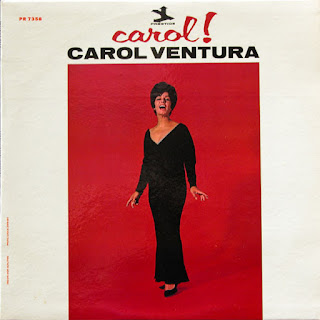Bob Welch (August 31, 1945 – June 7, 2012) was an American musician who was a member of Fleetwood Mac from 1971 to 1974. He had a successful solo career in the late 1970s. His singles included "Hot Love, Cold World", "Ebony Eyes", "Precious Love", "Hypnotized", and his signature song, "Sentimental Lady".
Robert Lawrence Welch Jr. was born in Los Angeles. His mother was the actor Templeton Fox and his father was Robert L Welch, a screenwriter and producer at Paramount Pictures. As a child, he played the clarinet and guitar. After leaving high school, he briefly lived in Paris before starting a degree course in French at the University of California, Los Angeles. This was abandoned when Welch was recruited to play guitar in a Los Angeles pop-soul group that became known as the Seven Souls.
When the Seven Souls split up in 1969, Welch returned to Paris and tried unsuccessfully to restart his musical career. He was rescued by an invitation in 1971 to travel to England to meet Fleetwood Mac. The meeting was engineered by Judy Wong, a high-school friend who knew the band. At this time, Fleetwood Mac were in need of a new guitarist, as two members, Peter Green and Jeremy Spencer, had recently left.
Welch was hired almost immediately and joined the remaining personnel – the drummer Mick Fleetwood, the pianist and singer Christine McVie, the bass guitarist John McVie and the lead guitarist Danny Kirwan – at their headquarters, Benifold, a country house in Hampshire. There, they recorded the album Future Games, using the mobile studio owned by the Rolling Stones. Welch composed the title song and brought a more melodic element to a group whose basic sound had previously been R&B. Future Games was followed by the critically acclaimed Bare Trees, whose best moments included another Welch song, Sentimental Lady.
Welch toured Europe and the US with Fleetwood Mac, but the deteriorating relationship between him and Kirwan led to the latter storming off stage following an argument over tuning. Kirwan was replaced in late 1972 by two more musicians from the British blues scene, the vocalist Dave Walker and the guitarist Bob Weston. After the next album, Penguin, Walker left the group. The band's second album of 1973, Mystery to Me, included one of Welch's most admired songs, Hypnotized.
Further turmoil occurred on tour as the McVies' marriage was under strain, and it was also revealed that Weston had been having an affair with Fleetwood's wife, Jenny Boyd. Weston was sacked and the rest of the tour was cancelled. Next, their manager, Clifford Davis, assembled a new team of musicians to tour as Fleetwood Mac. Fleetwood, Welch and the McVies retaliated with a lawsuit and after almost a year, they were able to tour and record again.
By then, Welch had convinced his colleagues that they should base themselves in Los Angeles to conquer the US market and to monitor the efforts of their record company, Warner Bros. This was the crucial factor in Fleetwood Mac's global success. However, Welch would not be there to share in it. After recording one more album with the group, Heroes Are Hard to Find, he resigned at the end of 1974. He had made a major contribution to five albums in little more than three years and had to adapt to several switches of personnel. His first marriage, to Nancy, was in crisis and he felt alienated from the group except for Fleetwood, who was his manager for the next few years.
 |
| Nicks and Welch. |
 |
| Paris |
In 1975, Welch formed the short-lived hard rock power trio Paris with ex-Jethro Tull bassist Glenn Cornick and former Nazz drummer Thom Mooney. Paris released two commercially unsuccessful albums: Paris and Big Towne, 2061. Hunt Sales later replaced Mooney until the group disbanded.
Welch's solo career began promisingly with the million-selling 1977 album French Kiss, which included a new version of Sentimental Lady, and Three Hearts (1979), which included Precious Love, but his records in the 1980s were less successful. He was treated for heroin addiction and began to concentrate on songwriting, moving to Nashville in the 90s. In 1999, Welch released an experimental jazz/loop-based album, Bob Welch Looks at Bop. He followed this up in 2003 with His Fleetwood Mac Years and Beyond. In 2006, he released His Fleetwood Mac Years and Beyond 2, which mixed a half-dozen new compositions, along with a similar number of his Mac/solo remakes. He released more CDs with Fuel Records in 2008, 2010, and 2011.
Welch had undergone spinal surgery three months prior to his death. Despite the surgery, doctors told him his prognosis for recovery was poor, and he would eventually become an invalid. He was still in considerable pain, despite taking the medication pregabalin (Lyrica) for six weeks. On June 7, 2012, around 6:00 a.m., Welch died by suicide, shooting himself in his Nashville home. He was 66 years old










































.jpg)










